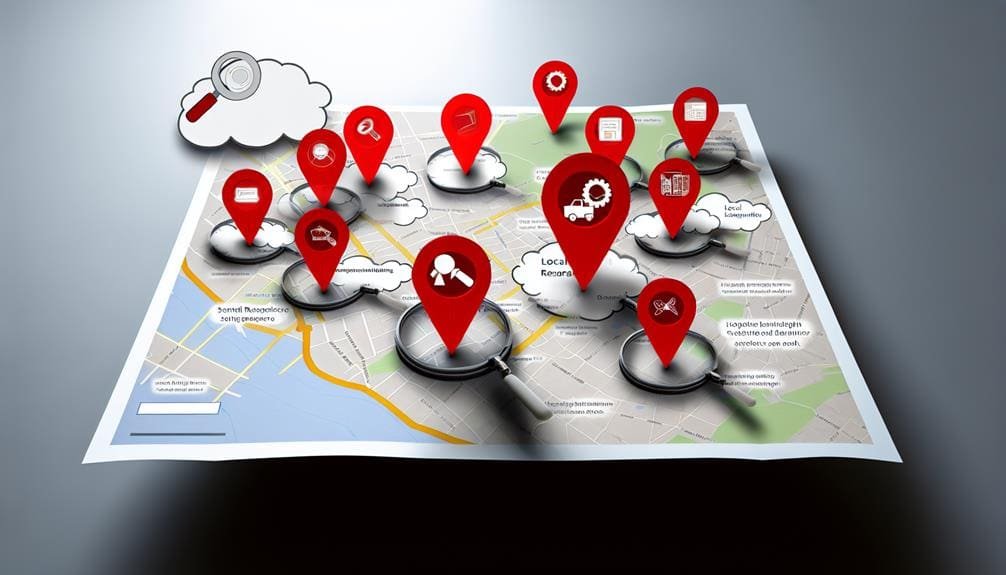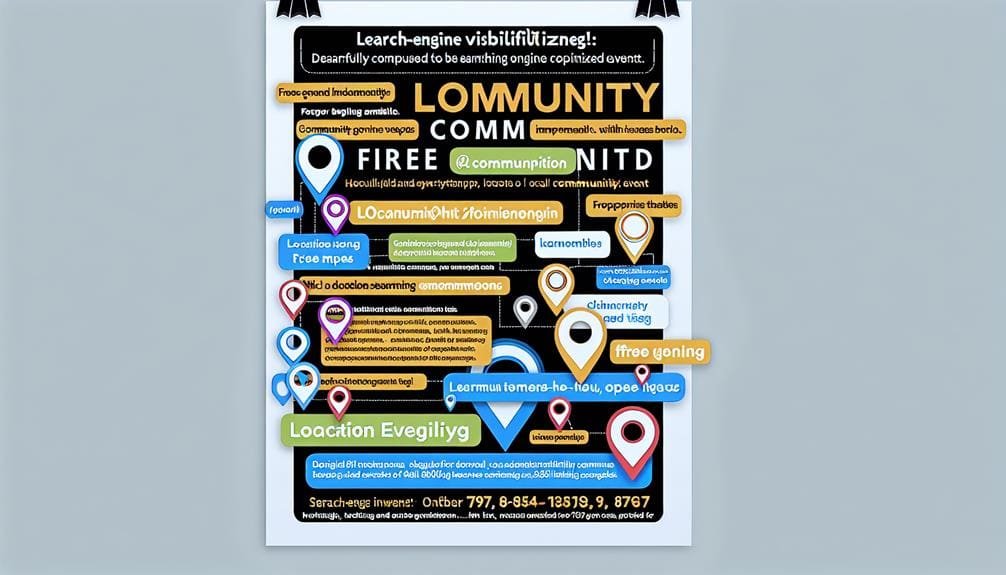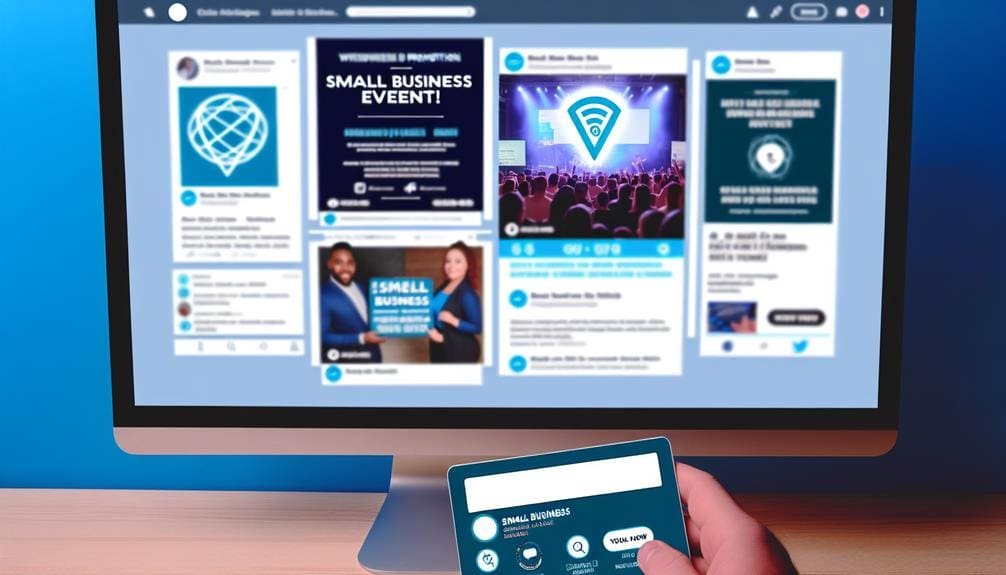8 Key SEO Tactics for City Event Marketing
January 10, 2024 | by Jacob Cavazos

In today’s digital age, 93% of online experiences begin with a search engine, making search engine optimization (SEO) a critical component for the success of city event marketing. As event marketers, we understand the importance of reaching our target audience effectively, and that’s where SEO comes into play. With eight key tactics specifically tailored for city event marketing, we can maximize the visibility of our events, drive higher attendance, and ultimately achieve our marketing goals. But how can these tactics elevate our event marketing strategies and ensure our events stand out in a crowded city?
Understanding City-Specific Event SEO
To effectively optimize SEO for city-specific events, we employ tailored strategies to target local audiences and enhance event visibility on search engines. Local SEO is pivotal in ensuring that city events reach the right audience. By leveraging local SEO techniques, such as optimizing event details with city-specific keywords, we can improve local search rankings and increase the likelihood of appearing in city-based searches. Through event schema markup, we enhance the presentation of event details on search engine results pages (SERPs), providing users with comprehensive information and increasing the likelihood of engagement.
In addition to optimizing event details, we utilize event management software to create SEO-friendly URLs and meta tags, further enhancing the visibility of city-specific events. This attention to detail ensures that our events are well-positioned in search results, increasing the likelihood of attracting local attendees. Moreover, we constantly monitor and measure SEO performance using tools like Google Analytics and Google Search Console to track website rankings, search traffic, and engagement metrics. This data-driven approach allows us to refine our SEO strategy continually, ensuring that city events receive maximum visibility and engagement.
Target Audience and Keyword Research
Leveraging our understanding of local SEO, we strategically align our keyword research with the preferences and behaviors of our target audience to drive maximum impact for city-specific event marketing. Identifying keywords is crucial for attracting organic search traffic to the event website and social media profiles. By researching and selecting relevant keywords that resonate with our target audience and have a high search volume, we can optimize our content to engage our audience effectively. Utilizing advanced keyword research tools, we gain valuable insights into our audience’s search habits and interests, allowing us to tailor our content accordingly.
Continuously refining our keyword strategy based on audience feedback and search trends is essential to maintaining relevance and maximizing our reach. This data-driven approach ensures that our event marketing efforts align with our target audience’s actual behaviors and preferences. By staying attuned to shifts in search traffic and the evolving landscape of keyword usage, we can adapt and optimize our strategy to consistently drive impact and engagement. In event marketing, understanding and effectively leveraging the target audience and keyword research is crucial for success in the competitive space of city-specific events.
On-Page and Off-Page Optimization

Optimizing web pages for higher rankings and increased relevant traffic involves on-page and off-page optimization strategies focusing on content, HTML source code, site architecture, link building, social media marketing, and influencer outreach.
Regarding on-page optimization for event websites, ensuring that the event information is presented clearly and structured correctly is crucial. Additionally, implementing event schema markup can help search engines understand and display relevant details about the event, improving its visibility in search results.
Off-page optimization plays a vital role in event marketing as well. Building high-quality backlinks from reputable sources can enhance the authority and credibility of the event website. Engaging in strategic social media marketing can also amplify the reach of event information, generating buzz and attracting more attendees. Furthermore, collaborating with influencers in the event’s niche can significantly expand the event’s exposure to a broader audience.
Implementing a comprehensive on-page and off-page optimization approach is essential for maximizing the visibility and impact of city events, ultimately driving higher attendance and engagement.
Leveraging Event Management Software
Regarding city event marketing, leveraging event management software offers many benefits for optimizing SEO. By utilizing the software, we can create SEO-friendly URLs and meta tags, enhancing our event pages and websites for search engines. Additionally, we can analyze event data to inform our SEO decisions and integrate the software with other marketing tools for a comprehensive SEO strategy.
Software Benefits
Event management software streamlines event organization, attendee registration, and ticketing processes saving time and effort while enhancing SEO-friendly event pages and improving online visibility and search rankings. Leveraging event management software offers numerous benefits for event marketing:
- Efficient data collection and analysis for informed SEO optimization decisions.
- Integration with marketing tools for a comprehensive SEO and event promotion strategy.
- Streamlined handling of various event marketing aspects, from SEO to attendee engagement.
Implementation Tips
As we harness the capabilities of event management software to streamline event organization and enhance SEO-friendly event pages, it’s crucial to pivot towards discussing the implementation tips for leveraging this valuable tool to maximize our online visibility and search rankings. Utilize event management software to create SEO-friendly URLs and meta tags, optimizing event pages for better search engine rankings. Leverage features such as event registration forms and ticketing options to enhance user experience and SEO. Monitor and analyze event data provided by the software to make informed SEO decisions and adjustments. Integrate event software with other marketing tools for a comprehensive SEO strategy and seamless execution. By leveraging event management software effectively, event organizers can improve visibility, drive traffic, and achieve higher rankings on search engine results pages.
Local SEO Strategies for Events

Regarding local SEO strategies for events, utilizing Google My Business and incorporating location-based keywords are crucial for improving visibility and attracting local attendees. Event websites can stand out on search engine results pages and drive local search traffic by optimizing event details with schema markup and structured data. Creating location-specific content and building local backlinks are effective tactics for improving event website visibility in local search results.
Google My Business
Managing your online presence and optimizing local SEO is crucial for event marketers, and Google My Business provides essential tools to achieve these goals, including working location, hours, and reviews. Leveraging Google My Business can significantly impact event discoverability and visibility in search engine results pages. Here’s why Google My Business is crucial for event marketing:
- Increases visibility in the local pack, making event information easily accessible.
- Enhances discoverability by allowing the inclusion of event details, photos, and customer reviews.
- Facilitates engagement with the audience through updates, review responses, and essential information sharing.
Location-based Keywords
Implementing location-based keywords is essential for maximizing the visibility of events in local searches and targeting specific geographic audiences effectively. By incorporating location-specific keywords into event marketing strategies, we can enhance the event’s SEO and improve its chances of being discovered by local audiences. Conducting thorough keyword research tailored to the event location is crucial for identifying the most relevant terms and phrases. Optimizing meta tags, titles, and descriptions with location-based keywords can significantly boost the event’s visibility in local search results. Additionally, integrating event schema markup with location details further enhances the website’s chances of appearing prominently in local search listings. Leveraging local business directories and creating location-specific content also plays a vital role in attracting attendees from the event’s target area, ultimately maximizing the event’s reach within the local audience.
Measuring Event SEO Success
To accurately measure the success of event SEO, it is essential to utilize analytics tools to track organic search traffic, keyword rankings, backlinks, local search visibility, CTR, and conversion rates.
- Organic Search Traffic: Monitoring the organic traffic to the event listing or website provides insights into the effectiveness of SEO efforts in driving relevant visitors.
- Keyword Rankings: Tracking the rankings of targeted keywords in search engine results helps assess the visibility and reach of the event content.
- Backlinks and Local Search Visibility: Analyzing the number and quality of backlinks and the event’s visibility in local search results indicates the strength of the SEO strategy in building authority and local presence.
Event Schema and Structured Data

Understanding the impact of event schema and structured data on SEO success is crucial for optimizing the visibility and relevance of city events in search results. Implementing event schema markup makes websites eligible for particular SERP features such as the event pack and carousel. This helps search engines better understand and display event details in search results, providing users with more comprehensive event information directly in search results. Leveraging event schema and structured data is crucial for event marketers to ensure their events are prominently featured in Google’s event search experiences, improving visibility and attracting potential attendees.
To illustrate the importance of event schema and structured data, consider the following comparison:
| Without Event Schema and Structured Data | With Event Schema and Structured Data |
|---|---|
| Limited visibility in search results | Enhanced visibility and relevance |
| Basic event details are displayed | Comprehensive event information is shown |
| Lower click-through rates | Potential for higher click-through rates |
Link Building and Content Strategy
A well-crafted content strategy and effectual link-building are pivotal components in driving SEO success for city event marketing. When it comes to event marketing, integrating these tactics is essential for maximizing online visibility and attracting target audiences. Here’s how link-building and content strategy contribute to SEO success for city event marketing:
- Enhanced Website Authority: Quality backlinks from reputable websites increase a website’s authority, signaling to search engines the credibility and relevance of the content.
- Improved Search Engine Rankings: A strategic content strategy incorporating targeted keywords and attracting natural backlinks can lead to higher rankings on search engine results pages (SERPs).
- Increased Organic Traffic: A well-executed link-building and content strategy can boost organic traffic to the event website, reaching a wider audience and attracting potential event attendees.
Integrating link-building and content strategy enhances SEO performance and creates a valuable online resource for event planners and attendees. By aligning these tactics with Google’s best practices, event marketers can boost their online presence and attract the right audience to their city events.
Frequently Asked Questions
What Are the Top 5 SEO Strategies?
We prioritize keyword targeting, content optimization, link building, mobile optimization, and local targeting. These strategies enhance website visibility, user experience, and authority. Our approach integrates data-driven techniques for adequate SEO mastery.
What Is SEO in Event Management?
SEO in event management boosts event promotion, digital marketing, and website optimization. It enhances online visibility, content creation, keyword research, link building, local targeting, and mobile optimization. This increases search engine discovery, event attendance, and engagement.
What Are the Top Local SEO Techniques?
Local SEO techniques are vital for city event marketing. We target specific local listings, optimize our Google My Business, and build citations for a solid local presence. Our on-page optimization, local link building, and mobile optimization drive engagement and conversions.
What Are SEO Strategies in Marketing?
We implement SEO tactics to boost website traffic and search engine ranking. Our marketing strategies focus on content optimization, keyword research, and link building for on-page and off-page optimization. Our digital outreach maximizes visibility and engagement.
RELATED POSTS
View all



